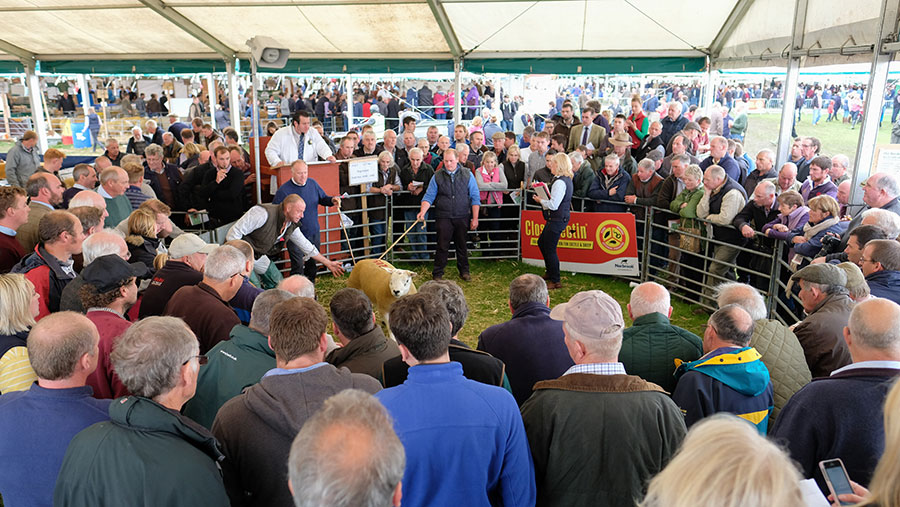FW Opinion: Farming emerges stronger after a difficult year
 Farmers have been deprived of many opportunities to see stock sold in person in the last year © Tim Scrivener
Farmers have been deprived of many opportunities to see stock sold in person in the last year © Tim Scrivener The first time the word “coronavirus” was mentioned in Farmers Weekly was on 2 March 2020 in a story about the International Agriculture Show in Paris closing a day early.
Back then, the UK had 40 cases of the virus (that it had detected), and the final line of the story observed that shows and events may be threatened “if the government was forced to introduce similar restrictions to France”.
How blissfully naive we all were.
See also: FW Opinion: Stamping out sexism is a job for all of us
For farming, so much has changed, yet so much has stayed the same. Many of you reading this will have lost loved ones, while others will still be suffering the after-effects of a bad bout of the disease. I wish all of you the very best.
Others will be reflecting on tourism businesses that have had carefully planned performance forecasts blown to smithereens, while other diversifications have sprung up almost overnight.
About the author
 Andrew Meredith
Andrew Meredith
Editor, Farmers Weekly
Contact:
E: andrew.meredith@markallengroup.com
T: @Merry_Meredith
Read more articles by Andrew Meredith
However, I think most farmers, when reflecting on the industry as a whole, will be happy to admit that we have probably suffered a lot less financial heartache than many other sectors, and rural isolation has offered additional protection against the spread of the virus.
Some have even prospered, and we take a look this week at some more businesses that swiftly adapted to serve increased consumer demands for home delivery and local retail.
Others have been buoyed by rising commodity prices, particularly in the arable and red meat sectors.
It is a real shame that sheep and cattle finishers who use the live ring are not able to see their stock go under the hammer at the moment, with prices better than they have been for a long time.
Livestock markets deserve a huge amount of credit for their hard work in the past 12 months, staying open to help to keep supply chains running smoothly, even as the alleys emptied of most personnel except buyers.
I am sure that if they had been forced to shut, the resulting reduction in competition in the marketplace would have held back the price rises that producers are enjoying.
A farmer from 150 years ago would still recognise at a glance the business being conducted at these institutions, although they might find the wands being waved over pieces of plastic hanging from ears a bit of a shock.
Technology races ahead
But in the background, the coronavirus pandemic has accelerated the use of technology even at these traditional venues, with the introduction of online viewing and bidding at many more rings.
Last week, the Livestock Auctioneers Association reported that marts in England and Wales had enjoyed a bumper year, with throughputs up despite a drop in overall livestock production.
It is from this position of strength that markets should have the courage to continue to innovate and diversify, because their rivals certainly are.
This week saw the launch of livestock technology company Breedr’s latest innovation – what it calls the world’s first data-driven supply chain contract.
It promises to unlock new ways for producers to access premiums linked to the demonstration of their small environmental footprint and high standards of welfare.
I look forward to seeing how their big claims pan out. Predicting the future is hard – no-one could have predicted the events of the past 12 months.
But in the absence of certainty, I remain optimistic that agriculture is a bright sector, fizzing with ideas that will propel those who are prepared to work smart as well as hard towards prosperity.
